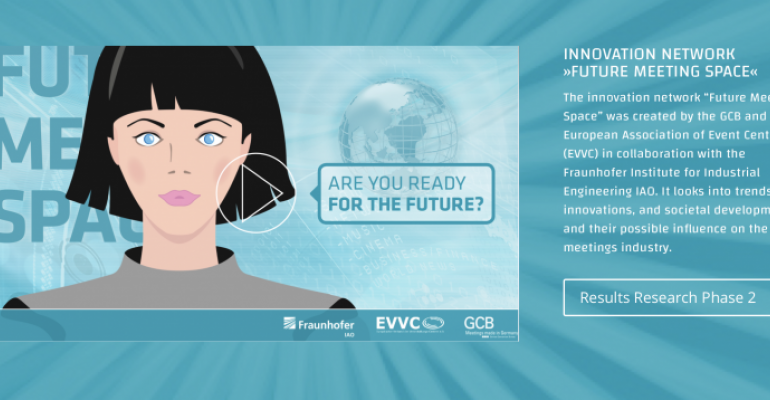When meeting organizers gather enough data to understand certain key personality traits among their attendees, they can build event sessions that deliver meaningful impact to every participant. That was the overarching conclusion from a year-long research project by German Convention Bureau, the European Association of Event Centres, and Fraunhofer Society, Europe's largest application-oriented research organization. The research results were presented earlier this month at the Professional Convention Management Association's Convening Leaders conference in Pittsburgh.
As the second of three parts of the Future Meeting Space initiative, this latest study found two major factors affecting attendee satisfaction: Whether or not they gain knowledge that can be applied to their everyday work; and whether or not they experience surprising or disruptive elements in sessions that create strong recall over time, which helps them make lasting changes in their work. And to make both of these things happen in sessions, planners should account for specific attendee traits: introvert or extrovert; degree of tech-savviness (high or low); and career ambition (high or average).
The study found that by gathering and understanding this kind of attendee data, planners can build educational sessions and other event activities that vary their use of unusual formats, technology tools, and interactive elements such that all attendees are positively impacted and get what they need from the event. For instance, one recommendation from the study is to create enough variety among interactive tools to satisfy all attendees, such as balancing real-time tech-based feedback applications with small-group discussions. The reason: Some sessions might appeal more strongly to one type of attendee and thus be ripe for more tech usage, while other sessions might be the opposite and be best served by other means.
Another recommendation is to carefully consider the length of the event as a whole as well as the length of individual sessions. The study finds the potential for networking is not automatically increased at longer events, especially if a critical mass of attendees do not identify as strong extroverts. This consideration would benefit the host organization's cost-to-benefit calculations during the planning process.
To get more details on key attendee differentiators, disruptive session elements, and expert recommendations for matching up those two elements for maximum effect, you can read the entire report here.





